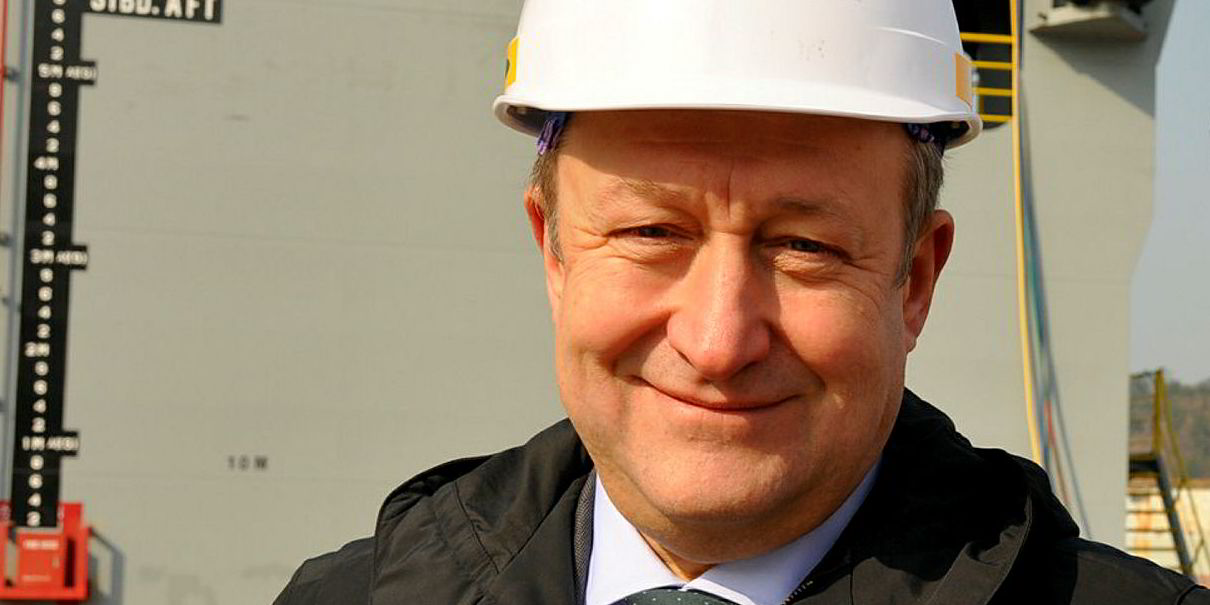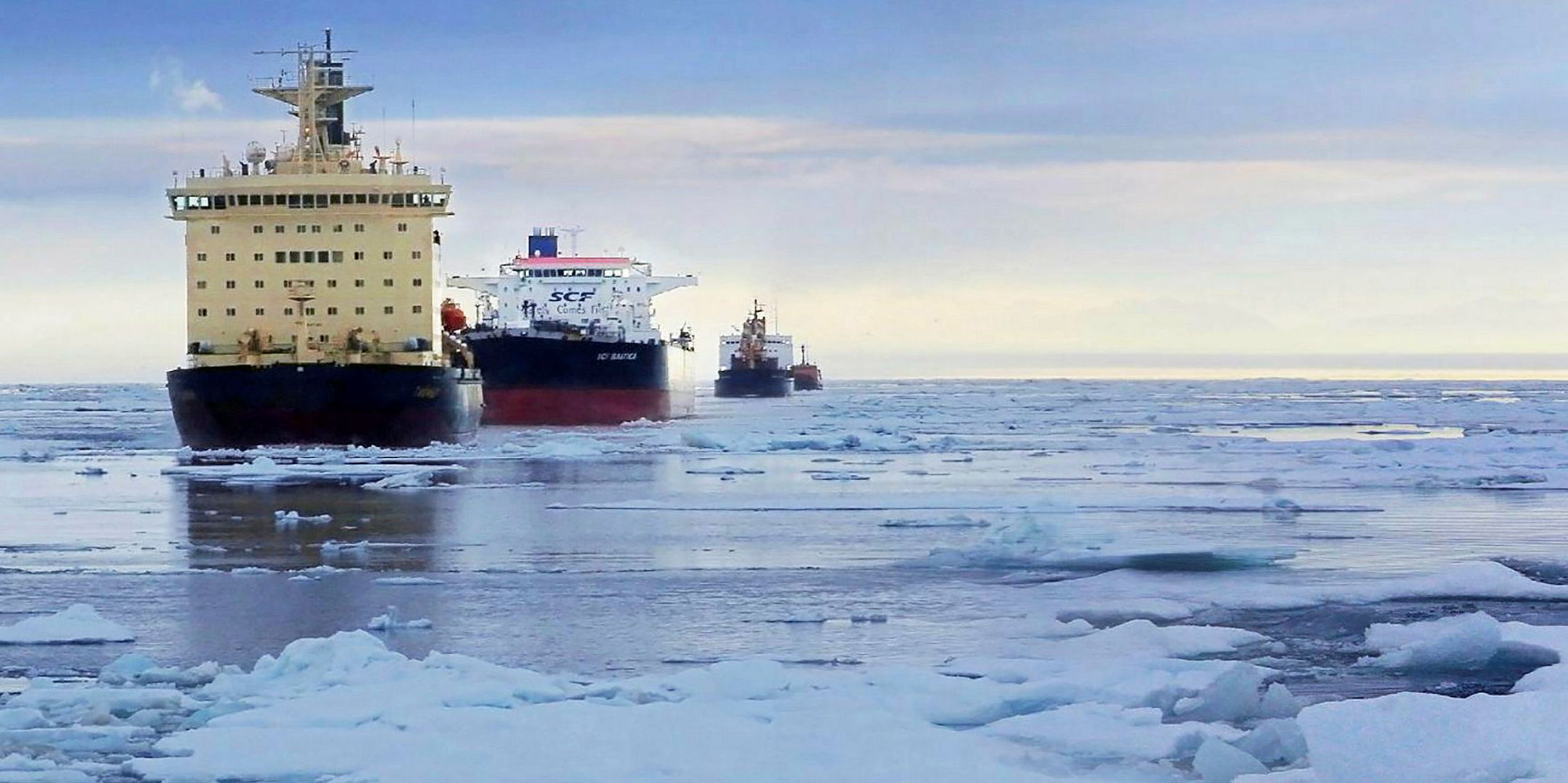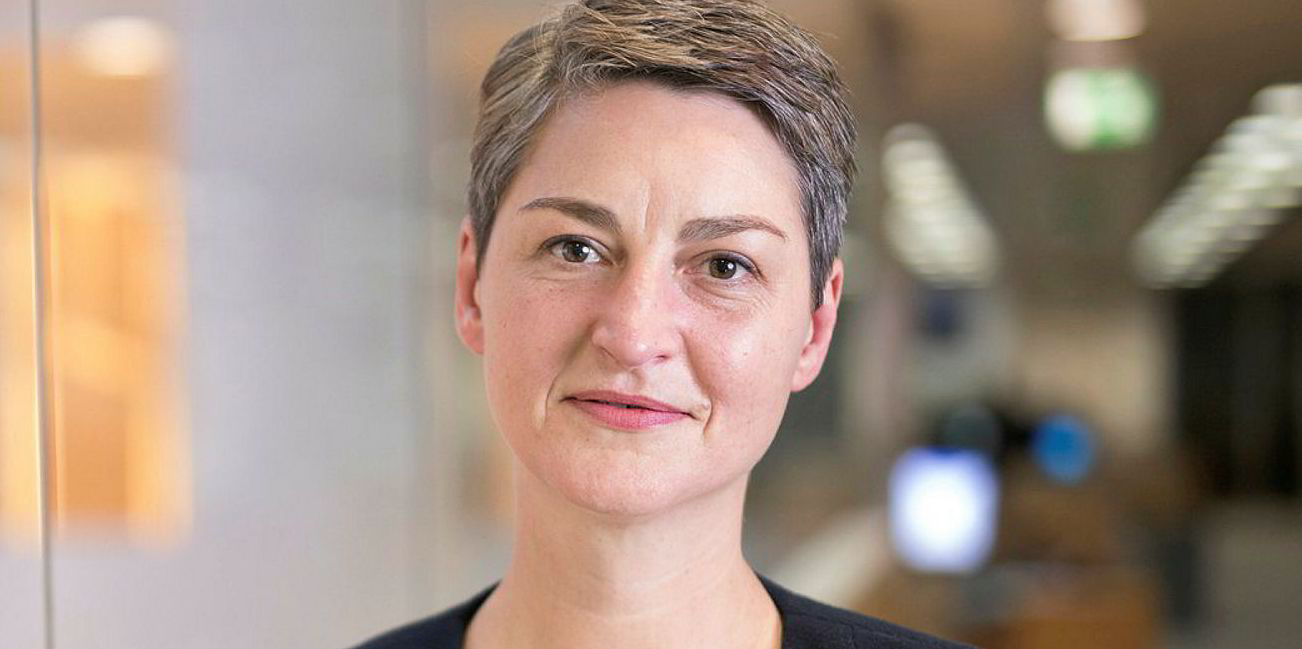As early as Saturday, a Mitsui OSK Lines and China Cosco Shipping-owned LNG carrier will pull into the Siberian port of Sabetta. Last weekend, the Atomflot-operated Russian ice-breaker newbuilding Arktika smashed its way to the North Pole itself.
Both sailings demonstrate a rapidly-melting Arctic region.
The 174,000-cbm newbuilding LNG Phecda is on its way from Shanghai to Russia’s Yamal LNG gas-producing project via the Northern Sea Route without ice-breaker assistance.
The sailing underlines the growing “season” for conventional ships to use the Northern Sea Route (NSR) well into the final months of the year.
Cargo volumes on the NSR are expected to reach 32m tonnes this year — largely LNG from Yamal or crude oil from the Novy Port field in the same location.
But dry cargo movements are also growing: Golden Ocean, Oldendorff Carriers and Nordic Bulk Carriers are all linked with shipments.
Russian President Vladimir Putin sees industrialisation of the Arctic as one of his priorities and Sovcomflot (SCF Group) non-executive chairman Sergey Frank is a cheerleader in his role on the NSR public committee.
It is not just Russia that is excited about the Arctic. The Chinese recently announced plans for a third — and its first heavy — ice breaker.
Its 122-metre ice-breaker and research vessel Xue Long 2 (built 2019) has just completed its first Arctic expedition.
Shipping opportunities
Last year, Beijing held its biggest-ever pure Arctic-focused conference. China is reported to have promised to use its power for “future protection and development” of the north.
But while some celebrate the shipping opportunities opening up, others sound alarm bells.
One of them is 18-year-old Mya-Rose Craig, who has just held “the most northerly climate strike” by holding a protest — with the help of Greenpeace — at 82 degrees north.
That came as Arctic sea ice was measured at 1.44m square miles (3.72m square km) by the end of what is termed the “summer melt”.
This is the second lowest since records began more than 40 years ago — and the number would have been worse but for a small finger of ice.
Heatwaves in Siberia and huge forest fires are considered responsible for the extra meltdown.
Shell has promised to move away from oil and become an energy-transition-based company, yet it has just filed new plans to drill for oil off Arctic Alaska
Meanwhile, a new report in Nature Communications suggests the Amazon rainforest — a vital carbon sink for the world — is at a tipping point and in danger of turning into grasslands savannah.
This is climate change writ large. And what starts in the Arctic, spreads to the whole planet through rising sea levels.
The International Maritime Organization has already proposed a ban on heavy fuel oil in the Arctic to reduce pollution there but there are many exemptions.
A lot of shipping leaders are fretting how to decarbonise fuel propulsion in line with the goals outlined by the IMO.
Yet other parts of the industry are getting excited about the opportunities in the melting Arctic. Is this not somewhat contradictory?
It is not just the maritime industry looking in both ways.
Shell has promised to move away from oil and become an energy-transition-based company, yet it has just filed new plans to drill for oil off Arctic Alaska.
Arctic pledge
Other oil groups, such as Total of France, have pledged not to drill there any more, as have some investment banks.
Leading liner companies such as Hapag-Lloyd, Mediterranean Shipping Co and CMA CGM have already said they will not use these northern routes.
Shippers such as Kuehne+Nagel, Ralph Lauren and Gap have also signed the Arctic Corporate Shipping Pledge initiated by the Ocean Conservancy charity and Nike.
Indigenous communities, who have lived longest in the Arctic, largely view climate change and industrialisation as a threat to their way of life.
The Arctic is a haven of unique wildlife as well as a symbol of planetary well-being. It needs special protection more than unrestrained economic development. If Sergey phones, just say “nyet”.

A photo caption in this story has been amended since publication to reflect that Sergey Frank is non-executive chairman of Sovcomflot.







